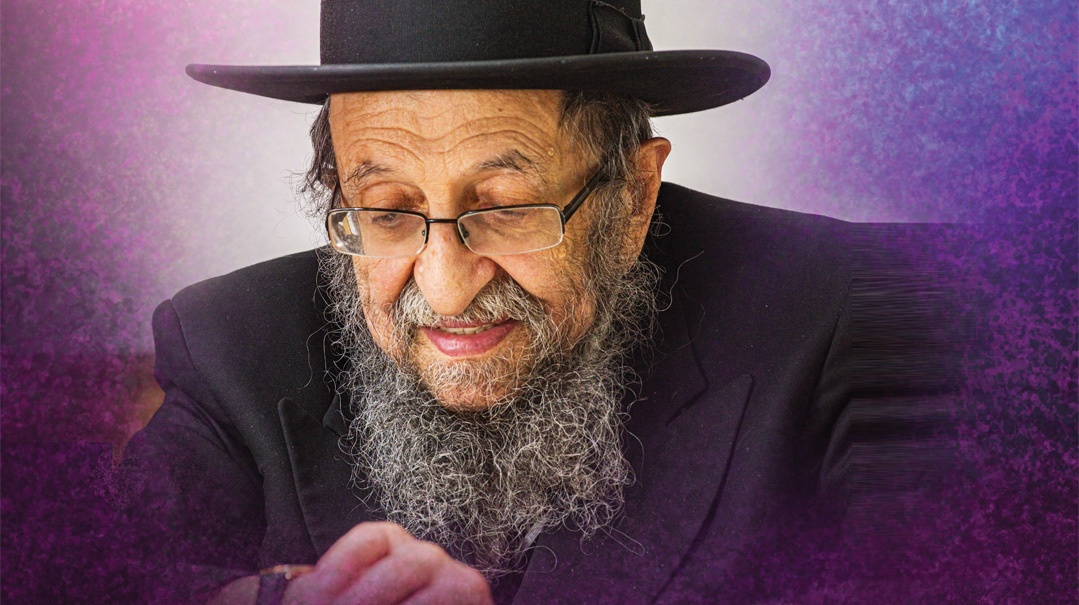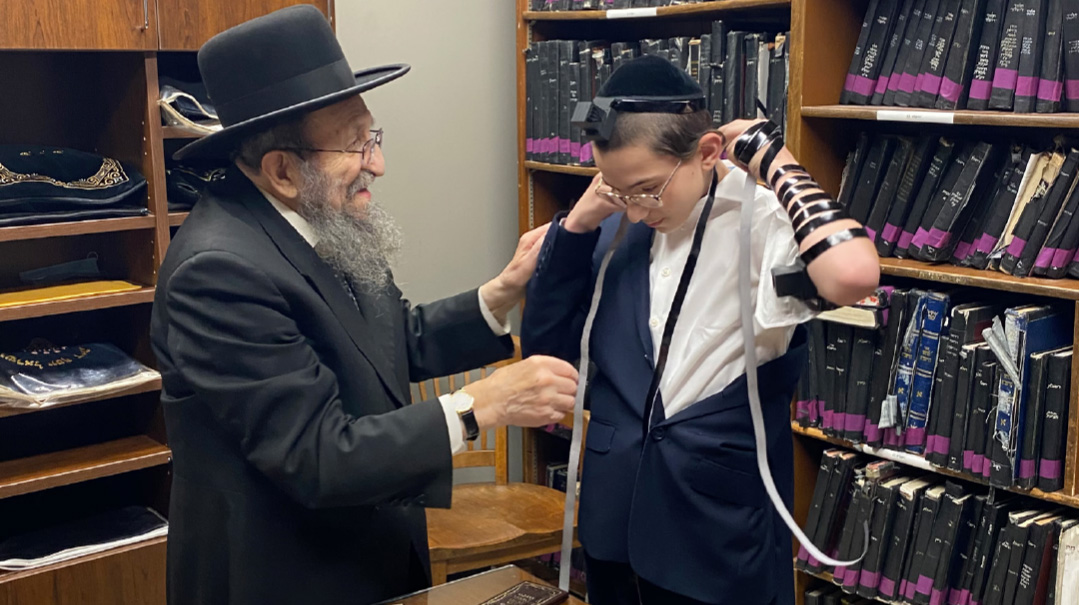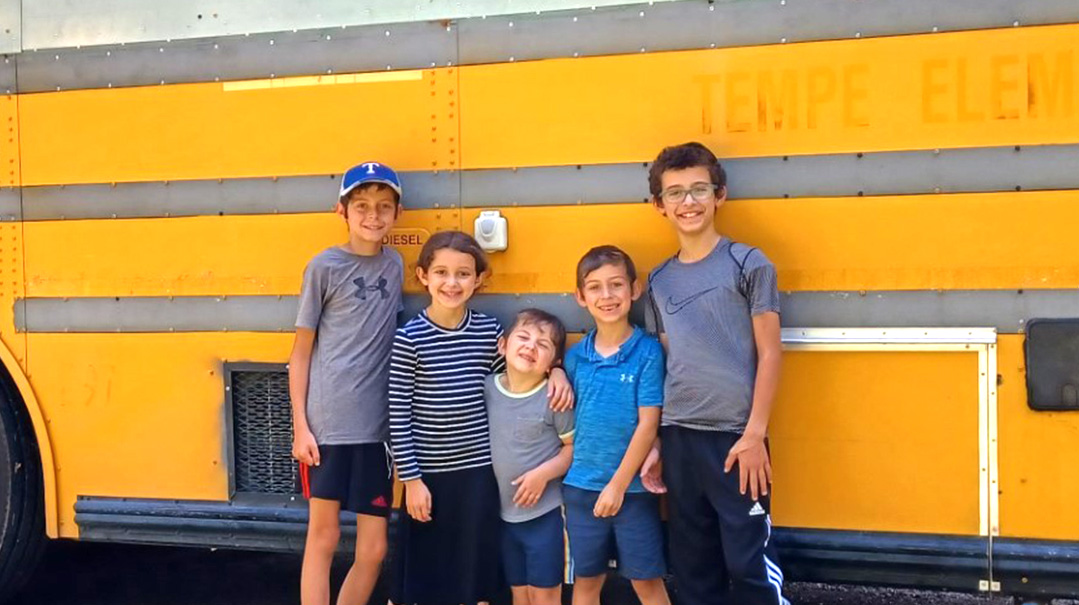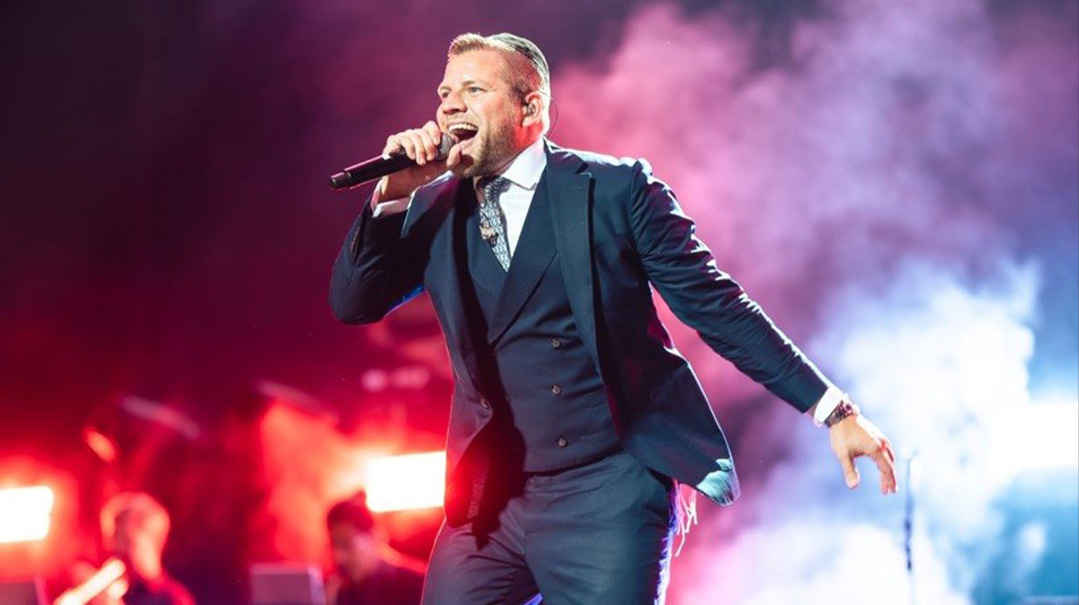Our Gadol

Who is Rav Shmuel Kamenetsky and how did he become the beloved leader of an entire continent?

Photos: Meir Haltovsky, Family archives
Across the Ocean
The Kamenetsky family lived in the tiny Lithuanian village of Tzitevyan, where young Shmuel’s father, Rav Yaakov, was the rav. The town was tiny and rural: when Rav Shmuel was a child, he broke his nose when he was kicked in the face by a horse. In the late 1930s, Rav Yaakov traveled to the United States and Canada to raise funds for the Slabodka yeshiva. Recognizing that World War II was on the horizon and that Jews in Europe were in danger, he took a position as a rav and brought his family over to Toronto in 1938, saving them from the horrors of the Holocaust.
Such a small town did not have a lot of people to chip in for the rav’s salary, and the money they gave was not enough for the family to live on, so Rav Yaakov applied to become the rav of Vilkomir, a larger town. To the family’s dismay, a different rav was chosen. With no other options, Rav Yaakov brought his family to the United States, first serving as a rav in Seattle and then settling in Toronto in 1938.
It may have seemed like a huge disappointment that they could not find a position in Europe and they had to move to America. But that decision saved the entire family from the horrors of the Holocaust, which began the year after they moved!
Growing in Torah
Young Shmuel attended the Eitz Chaim school in Toronto, and then went to Baltimore to learn in Ner Yisroel under Rosh Yeshivah Rav Yitzchok Ruderman, who was his father’s cousin. At age 20, the budding talmid chacham passed a farher on the entire Shas with Rashi and Tosafos, and Pnei Yehoshua on seder Moed and Nashim.
While in Baltimore, R’ Shmuel heard a derashah from Rav Aharon Kotler, the famous founder and Rosh Yeshivah of Beth Medrash Govoha, the Lakewood Yeshivah. Right away, he knew: this man would be his rebbi! Not wanting to offend his cousin Rav Ruderman, and suspecting his father wouldn’t allow it, Rav Shmuel slipped out at night and traveled to Lakewood to learn under Rav Aharon.
Building Torah
The young talmid chacham married Temi Brooks, the daughter of a chazzan. Until her petirah this past year, their shalom bayis was legendary, with each totally dedicated to caring for the other. Together they went on to build a beautiful family, all of whom became marbitzei Torah in different ways.
They lived in Lakewood for a short while, until Rav Shmuel traveled to start a yeshivah in Los Angeles. Since travel at the time was expensive and time-consuming, he could not go back and forth often. He even missed the birth of one of his children! When that yeshivah didn’t last, he moved to Philadelphia to start a new yeshivah, which has flourished as a premier makom Torah for nearly 70 years. His partner in leading the yeshivah was Rav Elya Svei ztz”l. When they joined together to lead the yeshivah, they wanted to make sure they had a good way to resolve disagreements. Together, they picked a certain talmid chacham and decided that they would bring all disagreements to him and do whatever he said. But in all the decades that the two worked together, they never needed the rav to resolve a disagreement!
Many of today’s rabbanim and rebbeim are students of Philadelphia. Chances are, you’ve had more than one rebbe or menahel who learned there.
Always Listening
Visitors who arrive at Rav Shmuel’s office are sometimes surprised by how little there is to hear. The Rosh Yeshivah is not a talker — he’s a listener. When you ask him a question, often, his first response will be, “Well, what do you think?” His responses are short and to the point. He’ll offer suggestions, but will never insist that the questioner do things his way.
Recently, a woman called the Rosh Yeshivah and poured out her heart about a very difficult situation. After hearing her out and wishing her well, the Rosh Yeshivah mentioned to someone sitting nearby that the woman clearly needed to make some big and difficult changes in her life.
“So why didn’t you tell her?” asked the man.
“She wasn’t ready to hear, she just needed someone to listen,” said Rav Shmuel.
“So what will be? How will she know what to do?” pressed the man.
“She’ll call back, and I’ll listen again, and when I can tell that she’s ready, I’ll give her the advice she needs,” said Rav Shmuel.

Always Available
A talmid was once sleeping over at the Kamenetsky home. He heard the phone ring at one in the morning, then again at three am, and finally at five am. In the morning, he couldn’t contain his curiosity, and asked, “Doesn’t the Rosh Yeshivah ever take the phone off the hook?”
“No,” said Rav Shmuel. He explained that he had learned from his father, Rav Yaakov, that one must always be available to a Yid in need. “I can’t always help them, but at least I can listen, and see if there’s something I can do.” After thinking a moment, Rav Shmuel added that there was one time he remembered taking his phone off the hook. A caller had called every half hour straight through the night, so at a certain point he apologized but explained he needed to take the phone off the hook because his wife wasn’t able to sleep.
Love for Every Person
When the Rosh Yeshivah meets a large group, he likes to ask each person his name, and will try to find a connection or compliment that that person finds meaningful. If he sees someone has something to ask but is feeling shy, he’ll often hold the person’s hand, or lean down to gently encourage him to speak freely. If a visitor is holding a camera, he’ll happily pose, or even make them comfortable by reminding them to get a picture.
A magazine photographer once came to take photos of some well-known people meeting the Rosh Yeshivah. Before the meeting got underway, Rav Shmuel made sure the photographer also got a drink, and spoke to him warmly, asking him for his name and his family background. Before he left, Rav Shmuel asked to take a picture with the photographer, just the two of them. The photographer, who made a living photographing famous people and gedolim, was so moved that he began consulting Rav Shmuel on all major decisions in his life, even though they’d never met before.
Looking Out for Others
Whether his audience is yeshivah students or working men, one message Rav Shmuel often repeats is the importance of thinking about others. That’s why, if you visit the Philadelphia yeshivah, you might spot a few unique minhagim.
Every washing cup in the building is full to the brim with warm water. Why? While you’re drying your hands, you may as well use the time to help someone else out and fill the cup for the next person. And if you’re filling it anyway, why not add warm water to make it even more comfortable!
At night, as you walk down the hallway in the dormitory, you’ll see pairs of shoes outside each room. The latest arrival in each room wouldn’t want to disturb his friends’ sleep, chas v’shalom, so the bochurim take their shoes off at the door and slip in silently.
“Rav Shmuel never gave a shmuess about taking off your shoes,” explains a talmid. “It’s just a given that we have to care about each other. He always says, ‘M’darf trachten vegn tzveiten — you need to think about another.’”
In the Rosh Yeshivah’s home, the air-conditioner is always off, since he considers it a luxury. So why is it there? When the home fills up with talmidim, it gets turned on — someone else’s comfort isn’t a luxury anymore!
Body and Soul
Besides his own learning and duties as rosh yeshivah, Rav Shmuel is the address for advice and psak for individuals and whole communities. Anyone can call him; he will answer the phone himself, at any hour of the day, without a secretary screening his calls. How does he do it all?
For many decades, Rav Shmuel has been sleeping only four hours a night. Wait, I hear you asking, doesn’t my mother always say that you need to take care of yourself?
In fact, Rav Shmuel often reminds talmidim that time is the most precious thing we have. Everyone has a responsibility to make the most of their time, so Rav Shmuel is careful to protect his health and keep himself as strong as possible.
He eats only healthy foods, and walks frequently for exercise. He encourages talmidim to do the same (though if you’re a kid or teenager you can play basketball instead of taking walks!). By keeping a healthy lifestyle, a person needs less sleep and is more alert and productive, allowing him to accomplish the maximum of Torah and mitzvos in his day.
In his 90s, Rav Shmuel is bli ayin hara more active and youthful looking than some people decades younger.
True Love
The Rosh Yeshivah meets new people daily but remembers them all. The secret, though, isn’t his memory — it’s his love for each one.
Rav Shmuel once asked a talmid a question about a ninth-grader. “There are 200 boys in this yeshivah! I don’t know who that is,” said the bochur, who was in third year beis medrash — seven years older than the student Rav Shmuel had asked him about. But Rav Shmuel was pained. If someone has true ahavas Yisrael, he said, he would know the names of every boy he encountered. In later years, he told that same talmid that he recognizes thousands of different people’s voices!
True Ideals
A theme that Rav Shmuel often emphasizes is honesty.
Atalmid once asked Rav Shmuel if he was allowed to write a business contract in a specific way that might have been technically mutar but was definitely in a gray area according to the local law. “It may be mutar,” Rav Shmuel said, “but it’s not worth your middas ha’emes.”
In Honor
While Rav Shmuel is not protective of his own honor, other people’s dignity is very precious to him, so he finds creative solutions to protect people’s self-respect.
While standing outside once at a crowded levayah, people kept approaching the Rosh Yeshivah to say shalom aleichem. Each time, he answered, “Shalom alei…oh, wait, you’re not supposed to greet people at a levayah.” This happened several times, and each time, he acted as if he had just remembered the halachah. This gave him a respectful way to acknowledge their greeting and, at the same time, teach them the halachah, without making them feel silly for not knowing.
When Hashem appeared to Eliyahu Hanavi, the pasuk tells us that He did not come with a crackling fire, a roaring wind, or a rumbling storm. He came with a thin, quiet sound. Truth and Torah don’t need to make a noise or a fuss.
Without noise, without fanfare, with his quiet, gentle ways, Rav Shmuel continues to lead his people towards greater heights in avodas Hashem.
(Originally featured in Mishpacha Jr., Issue 931)
Oops! We could not locate your form.







